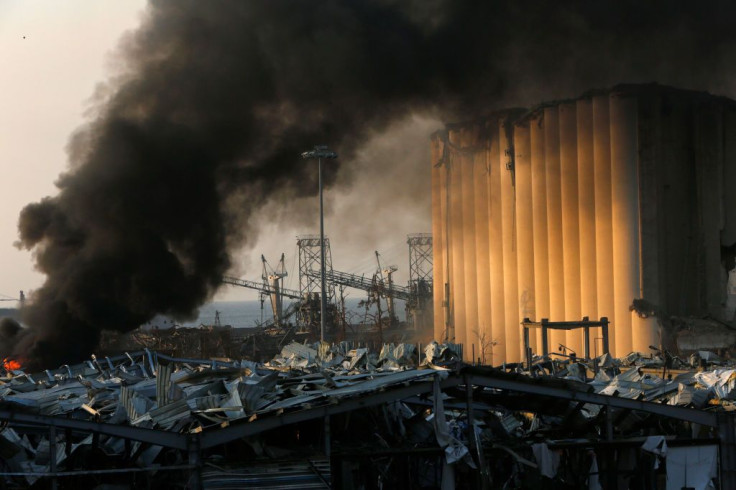In August 2020, the Lebanon capital Beirut was engulfed in a massive explosion that claimed over 150 lives. But as discovered by the Lebanese Army, the site of the destruction is still susceptible to more explosion. The Beirut port, which was the epicentre of the explosion last month still contains tons of explosive ammonium nitrate.
The explosion that took place on August 4 on Beirut’s port was triggered when more than 2,900 tons of ammonium nitrate had ignited in a fire. In the ensuing disaster, at least 190 people were killed and thousands were left injured. Hundreds of thousands were rendered homeless in the billions of dollars of destruction caused by the explosion.
The explosive ammonium nitrate entered Beirut in November 2013 via the Moldovan-flagged cargo ship MV Rhosus which had docked in Beirut owing to some maintenance issues. But eventually, the vessel was abandoned and it was left to decay at the port's warehouse 12, where the explosion originated.
On September 3, the Lebanese Armed Forces shared that its army engineering regiment has discovered 4.35 metric tons, which amounts to nearly 4.8 tons, of ammonium nitrate on Beirut’s port. The inspection was conducted when the port’s custom authorities at entrance number nine requested for it. As of now, the military units "are working to handle" the issue, as per their statement.
The blast had not only caused deaths and destruction but also revived the protests calling for political upheaval to the streets of Beirut. Amidst the financial crisis and growing social unrest, Prime Minister Hassan Diab was forced to resign. The new Prime Minister is Mustapha Adib who has promised that he will "heal our nation and to restore people's hope in a better tomorrow."
In wake of the blast, Beirut has been playing host to many international aid workers and high-profile officials from across the globe to aid the country in recovering from the major loss. Recently, French President Emmanuel Macron visited twice Beirut in the past month and met with many Lebanese leaders.
The Lebanese city has also been visited by representatives of rivals Iran and the United States, wherein Iranian Foreign Mohammad Javid Zarif promised to support the country and the U.S. officials offered their assistance in investigating what caused the explosion.

© 2025 Latin Times. All rights reserved. Do not reproduce without permission.



